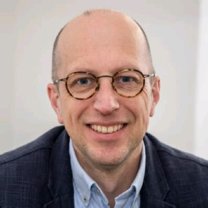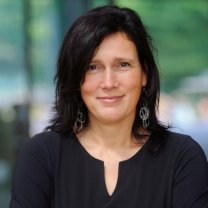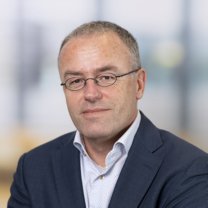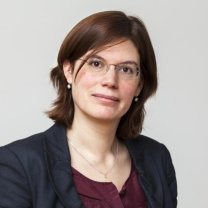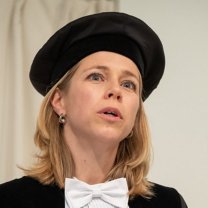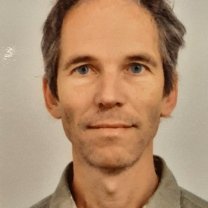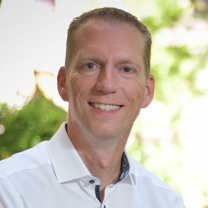4TU.Energy PhD course 2025
(Full Program with Speakers Bio, Lecture Abstract, Preparation Questions)
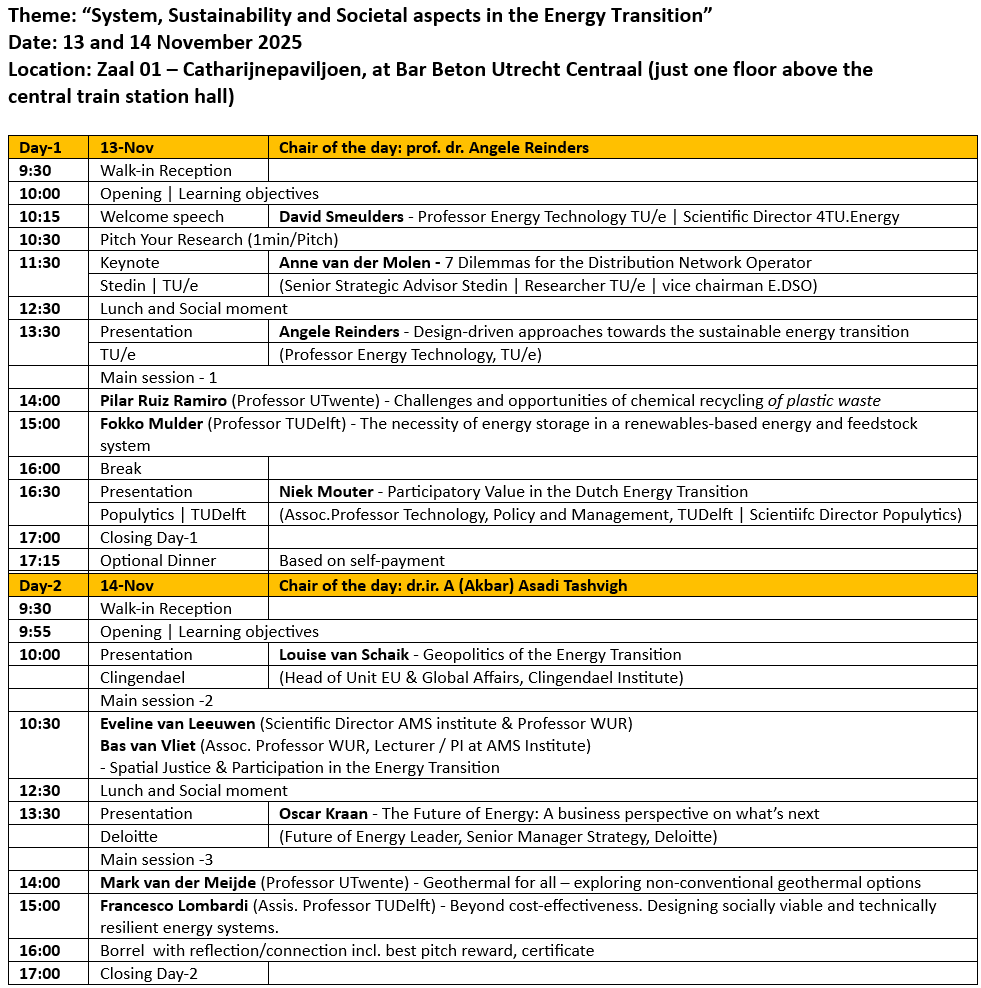
Bio:
Anne van der Molen is research associate smart systems planning and-operations with the research group Electrical Energy Systems at the TU/e department of Electrical Engineering. His main affiliation is with distribution network operator Stedin, where he is senior advisor. In both roles he is involved in innovation and sustainability of the energy system, with special attention to the function of gas and electricity networks in the sustainable energy system of the future. Since 2022, he is vice chair of the Technology and Knowledge Sharing (T&KS) committee of E.DSO, the European Association of Distribution System Operators.
His main research interest is the role of energy distribution grids in the energy system of the future. In his research at TU/e he focuses on technical-substantive issues such as examining the potential benefits of smart grid concepts from a technical, operational and information management point of view. Adding to these electrotechnical issues, he puts attention to issues concerning legislation and regulations and the allocation of the costs and benefits of Smart Grids.
Anne van der Molen received his M.Sc. degree from the Twente University of Technology in 1997. He is currently a Senior Advisor with the Dutch Distribution System Operator Stedin, where he is engaged with smart grids policy and strategic planning. In 2019, he was appointed as research associate with the Eindhoven University of Technology, where he is involved in the area of smart grid operations and data science for smart network- and systems operations.
Abstract:
The Netherlands is undergoing a major overhaul of its energy system: the energy transition. This transition will bring drastic changes in the coming years, both in how we generate energy and how we use it. Renewable sources are replacing fossil fuels, new energy carriers like hydrogen and green gas are emerging, and electricity consumption is rising sharply. This requires a rethinking of the basic principles of grid management. Reliability, accessibility, and affordability remain crucial, but how we achieve and guarantee them is changing.
Pre-reading:
Bio:
Angèle Reinders is a professor of 'Design of Sustainable Energy Systems' in the Energy Technology Group at Eindhoven University of Technology in the Netherlands. She aims at an optimal use and integration of sustainable energy technologies in products, buildings and local infrastructures. In this design-driven research theme improved designs of photovoltaic energy applications are explored from an interdisciplinary perspective, and also developed by means of simulation, prototyping and testing. Her focus is on - but not limited to - optimized applications of solar energy technologies in buildings and mobility.
Angèle Reinders studied experimental physics at Utrecht University, where she also received her doctoral degree (1999). In the past she held positions at Utrecht University, Delft University of Technology, University of Twente, Solliance, EPFL, Fraunhofer Institute of Solar Energy, the World Bank in the USA, ENEA in Italy, Center of Urban Energy in Toronto, UNSW in Australia and in Indonesia. She wrote several books, such as “Designing with Photovoltaics” (2020), “The Power of Design” (2012) and “Photovoltaic Solar Energy From Fundamentals to Applications” (Volume 1 in 2017, Volume 2 in 2024) and she co-founded the Journal of Photovoltaics. She is involved in the PVPS program of the International Energy Agency, among which Task 17 on PV for Transport, Task 19 on Photovoltaic Integration in Electricity Networks and Markets and Task 1 on Strategic PV Analysis & Outreach.
Abstract:
In my presentation, I will focus on the design-driven evaluation of photovoltaics in three cases: 1) PV in grids, 2) Building integrated PV and 3) Perovskite PV cells and modules. In my talk I will stimulate the audience to apply this approach to other energy technologies such as wind energy, biomass, hydrogen and so on.
Design-driven approaches towards the sustainable energy transition can stimulate the further development of various energy technologies such as wind energy, photovoltaic technologies, smart grids, solar fuels, etc. in order to optimize their implementation in practice. In principle, a design-driven approach is interdisciplinary, covering technology development and systems, costs, regulations, environmental impact, and societal aspects. This will be explained and illustrated by the case of photovoltaics (PV) technology in three different applications: 1) PV in grids, 2) Building-integrated PV, and 3) Perovskite PV cells and modules. In the context of the design-driven framework, attention will also be paid to the new Dutch energy law and regulations for PV implementation, the use of life cycle analysis to sustainable energy systems, as well as indicators for cost assessments. With the information supplied by this presentation, the audience is stimulated to apply a design-driven approach to the energy technologies they are working on.
Bio:
M. Pilar Ruiz is Professor at the Sustainable Process Technology group at the University of Twente and group leader of the Chemical Recycling group at Maastrich University, the Netherlands. With chemical engineering background, she has both academic and industrial experience in the area of carbon circularity. Her research areas of interest include the development of thermochemical and/or catalytic processes for biomass conversion to fuels, chemicals and materials, and for chemical recycling of plastic waste.
Bio:
- Studied physics at Leiden university and obtained a PhD in nano materials and magnetic materials in Leiden.
- After a short postdoc started at Delft university to perform research on materials for energy conversion and storage.
- Became the first 3TU director of education for the MSc Sustainable Energy Technology in Delft
- Became a full professor ‘Materials for Integrated energy systems’ in 2008 at the faculty of Applied Sciences, dept Chemical Engineering
- Research on lithium and sodium ion and hydrogen based batteries, hydrogen storage and production, as well as ammonia as energy carrier. Funding from NWO, H2020 and co-funding companies.
- One of the research results led to co-founding start-up Battolyser Systems
- Active in Energy Storage NL and the TKI Chemie, as well as Groenvermogen.
Abstract & Pre-Reading:
The transition to a fully renewables-based energy system is high on the agenda in the EU and elsewhere. As these renewables are mostly electricity producing solar power and wind power the natural supply of these needs to be matched to the electricity, energy and feedstock use of society [1]. We will look to the resulting short- and long-term energy storage needs, and the technologies that could realise such storage. We will see that short term electricity storage in batteries can be complemented by long term storage in hydrogen-based fuels including ammonia. Also the link to obtaining green chemical feedstocks will be discussed, with some examples [2]. An integrated battery-electrolyser solution will be discussed in the context of the reduction of critical materials use and scalability [3].
[1] J. Renewable Sustainable Energy 6, 033105 (2014)
[2] Insights Series 2017 Renewable Energy for Industry
[3] Energy & Environmental Science 10 (3), 756-764, Cell Reports Physical Science 5 (2024) 102286.
Bio:
Niek Mouter is associate professor Government Project Appraisal and Scientific Director of Populytics, a TU Delft startup
Abstract:
The Participatory Value Evaluation (PVE) is a participatory method which is deployed in the Dutch Energy Transition to involve citizens in the assessment of societal effects of energy policies. The essence of a PVE is that participants take place in the seat of a policymaker and experience the policy dilemma. They see the policy options that a policymaker considers, the impacts of the policy options and the constraints that exist (e.g. a limited public budget or a sustainability goal). Subsequently, participants answer the question what they would advise if they were in the shoes of a policymaker and provide an argumentation. The method has been applied in the Netherlands in over 40 governments in decision-making on energy policies. In this lecture Niek Mouter will present some applications and experiences with the method.
Pre-Reading:
Bio:
Dr. Louise van Schaik is Head of Unit EU & Global Affairs at the Clingendael Institute, where she coordinates research on climate change and sustainability. Her work focuses on the EU’s diplomatic performance in areas such as climate, energy, health, and food standards, as well as broader issues including EU foreign policy, climate-security, and resource scarcity. She is a member of the Advisory Council on International Affairs (AIV) Committee on European Integration and the Supervisory Board of IUCN Netherlands. Dr. Van Schaik holds a PhD in Political Science from KU Leuven and an MA in Public Administration from Leiden University.
Abstract:
Dr. Louise van Schaik will present on how great power rivalry is intersecting with the global energy transformation, and how the EU is responding. With China clearly choosing for clean tech and related supply chains, the US has returned to promoting exports of fossil fuels. Russia’s dependency on energy exports is both its geopolitical weapon and its vulnerability. The EU has a strategic interest in accelerating its shift away from unwarranted fossil dependencies, but finds that energy transition is no walk in the park and climate objectives no longer generating public enthusiasm. How can it manage relations with fossil suppliers, secure access to clean tech and the materials needed, whilst staying competitive and secure?
Bio's:
Prof.dr.ir Eveline van Leeuwen, expert in urban economics, is Scientific Director at Amsterdam Institute for Advanced Metropolitan Solutions (AMS Institute). In addition to her role at AMS Institute, Eveline is Chair of Urban Economics at Wageningen University & Research.
Within the fields of research and education, the topics that particularly spark her interest are the relations between city and countryside, interactions in space and time, differences between people and regions, and broad prosperity focused on themes such as circularity, energy transition and regional food systems.
In her research, she focuses on the integration of micro- and macro approaches in the field of regional science. Linking agent-based modelling and microsimulation, with macro models, such as input-output models, is an important common thread.
Dr. ir. Bas van Vliet is an Associate Professor in the Environmental Policy Group at Wageningen University. His expertise lies in the socio-technical transformation of urban water and energy systems, as well as systems of waste management and circularity. His research and teaching focus on how these dynamics are influenced by, and impact, social practices and the relationships between providers and consumers.
He has published edited volumes on infrastructures of consumption and on sanitation in both the Western and developing worlds, alongside 54 scientific publications covering topics such as drinking water supply, sanitation, waste management, renewable energy, the water-energy-food nexus, and housing retrofit.
Abstract/Narrative:
- The energy transition from home to system level
- Issues & Concepts of Spatial Justice and Participation in the Energy Transition
- Their analytical value for research into the energy transition: projects on Regional Energy Strategy in the province of Overijssel; the Local Inclusive Future Energy project in Amsterdam, and others
- Applications to research projects of participants in the course
Bio:
Oscar leads the Future of Energy team within Deloitte from the strategy practice of Deloitte consulting. He has more than 15 years of experience supporting governments and companies in the energy sector navigate the Future of Energy developing decarbonisation strategies, conducting feasibility studies and supporting energy infrastructure development. Before Deloitte Oscar worked 6 years at Shell within Shell’s Scenario Team and Shell’s New Energies Strategy Team and obtained his PhD on the topic of energy transition scenarios. He studied physics in Leiden and energy science in Utrecht.
Pre-reading:
Bio:
I have an MSc degree in earth sciences from Utrecht University (1998) and a PhD in geophysics from the ETH Zurich, Switzerland (2003). In the past, I worked at the Dutch Seismological Institute (KNMI), the Dutch geological survey (NITG-TNO) and for the Brazilian seismological service and Sao Paolo University in Brazil.
I started in 2003 ITC's department of Earth Systems Analysis. I'm now head of the department of Earth Systems Analysis (ITC-ESA) and professor in Geophysics with a focus on imaging of Earth structure, composition, and dynamics in space and time through the use of earth observation data. In particular, the focus is on the structure and deformation of the Earth due to natural and human-induced processes.
Abstract:
To meet national climate targets, the Dutch energy system requires a fundamental shift towards sustainable and reliable heat sources. Geothermal heat is one of the few options with the potential to structurally provide large-scale, carbon-neutral heat without adding to net congestion or using large areas of land. However, traditional deep geothermal applications (2,000-3,000m depth, >90°C, large production) is unsuitable for most of the Dutch subsurface. Therefore, The Netherlands should aim to use innovative non-conventional approaches (1,000-2,000m depth, 50-75°C) to access geothermal energy. These approaches are expected to be suitable for many more regions in the Netherlands and could enable geothermal energy to contribute to the goals of national heat demand in 2050.
Widespread implementation of shallow geothermal energy is currently hampered by multiple problem causes and knowledge gaps: geological uncertainty through lack of reservoir characterization; techno-economic insights into alternative energy system design; societal embedding and societal readiness; and real-world pilots for unconventional geothermal heat systems. Together, they form the basis for the lack of application and integrated understanding of how non-conventional geothermal resources can be safely and affordably utilized. Advanced geological and geophysical modelling, AI-supported prediction of rock and reservoir properties, multi-scale simulation methods, and societal engagement and participation can provide the scientific and societal basis for derisking and optimising geothermal development throughout the Netherlands. It requires a transdisciplinary approach by universities, applied-science institutes, industry and societal stakeholders, and society. Such a systemic approach can link scientific innovation to implementation, market feasibility, societal acceptance, and adjusted energy policy.
Questions before the lecture:
- Geothermal is one of the energy priorities for the Dutch government but realisation of geothermal heat is going very slow. What are the main causes for this?
- What could be solutions to stimulate the use of geothermal energy? - you can think along different lines such as where to find heat, how hot does it need to be, infrastructure, delivery security, seasonal variation, etc
- What can we do as scientists, and what can be done by public and private organisations?
Bio:
Francesco Lombardi is an assistant professor of Multi-Scale Integrated Energy System Design at TU Delft. he works on optimisation algorithms, energy system modelling, energy demand simulation, and other research methods that may support the practical realisation of fast, deep and resilient decarbonisation.
He is part of TU Delft’s PowerWeb Institute, which aims to design intelligent, integrated and inclusive energy systems, and he leads the ‘Transforming Cities’ task within TU Delft’s Urban Energy Institute.
Abstract:
Accelerating planning decisions on the energy transitions, such as which technologies to deploy, how much and where, is urgent. In fact, most countries, including the Netherlands, are lagging behind their energy transition targets. And yet, the methods used to support such decisions hinder rather than accelerate progress. They overly fixate on economic performance, risking the overlook of technology lock-in, socially unacceptable infrastructure, or vulnerability to disruption. This purely economic approach often results in social opposition to the envisioned plans, with consequent slowdowns, or in poorly reliable system designs, leading to costly investments in overcapacity after disruptions materialise. Are there approaches that may enable more reliable and practically viable system designs? We will discuss this together during the lecture, where I’ll look forward to enriching my view on this matter with new insights from the diverse audience.
Questions before the lecture:
If you were to plan the re-design of the Dutch energy system to meet the 2050 energy transition targets, what approach, method or tool would you use to inform such planning?
